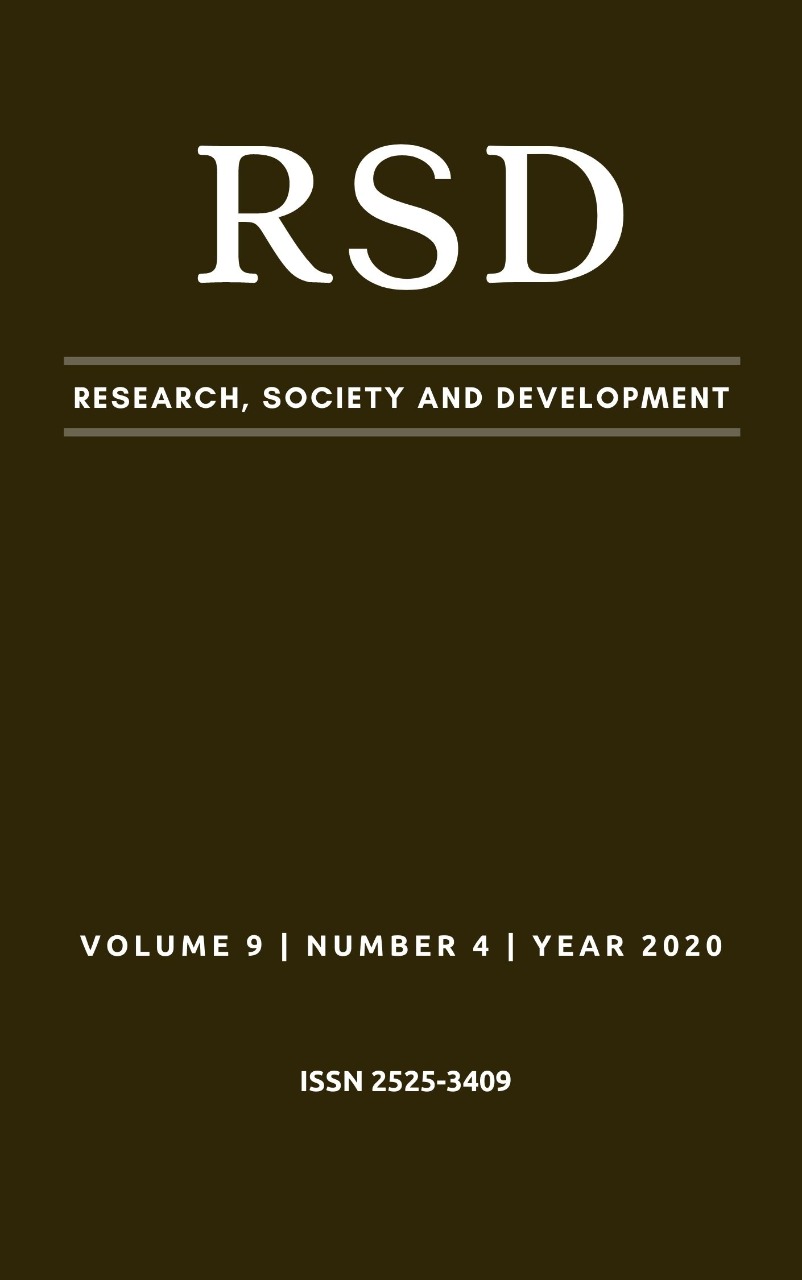A mesclagem no uso das normas padrão, culta e coloquial em artigos de opinião na revista nova escola
DOI:
https://doi.org/10.33448/rsd-v9i4.2960Palavras-chave:
Norma Padrão; Norma Culta; Norma coloquial; Artigo de Opinião; Nova Escola.Resumo
Este artigo originou-se das discussões travadas nas aulas da disciplina de Gramática, Variação e Ensino do PROFLETRAS/UEPB e se justifica pela necessidade de ampliação dessas discussões no âmbito acadêmico e escolar. Desse modo, o objetivo foi analisar o uso das normas padrão, culta e coloquial em Artigos de Opinião na revista Nova Escola, em consonância com as intenções comunicativas a partir dos diversos contextos, fazendo uma análise linguística em relação ao uso dessas normas, verificando as escolhas lexicais que justificam um ou outro uso dessas normas na construção desses textos de acordo com a intenção comunicativa dos produtores, a fim de trazer a distinção bem como a intencionalidade discursiva entre uma e outra variedade. Para tanto, usamos como aportes teóricos as contribuições de Gagné (2002), Antunes (2003), Bakhtin (2003), Veiga (1998), Bagno (2002), Bazerman (2005), entre outros, que orientam o uso das normas citadas. Foi utilizada como metodologia uma análise bibliográfica de caráter descritivo e interpretativista, apresentando a abordagem da revista em relação ao uso dessas variantes a partir da análise de três artigos que serviram como objeto de estudo. Os resultados apontaram que os artigos produzidos na revista, mesmo se voltando, de modo geral, aos professores, procuram adequar a sua finalidade discursiva, debater temas relativos ao ensino que podem abranger diferentes profissionais e não apenas os de língua portuguesa. Assim sendo, conclui-se que mesmo havendo o uso frequente da norma padrão, há a predominância do uso da linguagem culta e coloquial assegurando uma relação de proximidade entre texto/leitor.
Referências
Antunes, I. (2003). Aula de português: encontro & interação. São Paulo: Parábola Editorial.
BAGNO, M. (2002). Língua materna: letramento, variação e ensino / Marcos Bagno, Gilles Gagné, Michael Stubbs. –São Paulo: Parábola Editorial.
BAKHTIN, M. (2003). Estética da criação verbal. 4. ed. São Paulo: Martins Fontes.
BAZERMAN, C. (2005) Atos da fala, gêneros textuais e sistemas de atividades: como os textos organizam atividades e pessoas. São Paulo: Cortez.
BUENO, S. F. (2007) Semicultura e educação: uma análise crítica da revista Nova Escola. Revista Brasileira de Educação, 12 (35): 300-307.
DOLZ, B; SCHNEUWLY, D. (2004) Gêneros orais e escritos na escola. Trad. E org. ROJO, R. e CORDEIRO, G. L. Campinas: Mercado das Letras.
Gilles, G. (2002). In: Lingua materna: letramento, variação e ensino / Marcos Bagno, Gilles Gagné, Michael Stubbs. – São Paulo: Parábola Editorial.
RAUSC, R. B.; SCHLINDWEIN, L. M. (2001) As ressignificações do pensar/fazer de um grupo de professoras das séries iniciais. Contrapontos, 1 (2): 109-123.
Revista Nova Escola: Ano 32, Nº 302, março 2019.
Downloads
Publicado
Como Citar
Edição
Seção
Licença
Autores que publicam nesta revista concordam com os seguintes termos:
1) Autores mantém os direitos autorais e concedem à revista o direito de primeira publicação, com o trabalho simultaneamente licenciado sob a Licença Creative Commons Attribution que permite o compartilhamento do trabalho com reconhecimento da autoria e publicação inicial nesta revista.
2) Autores têm autorização para assumir contratos adicionais separadamente, para distribuição não-exclusiva da versão do trabalho publicada nesta revista (ex.: publicar em repositório institucional ou como capítulo de livro), com reconhecimento de autoria e publicação inicial nesta revista.
3) Autores têm permissão e são estimulados a publicar e distribuir seu trabalho online (ex.: em repositórios institucionais ou na sua página pessoal) a qualquer ponto antes ou durante o processo editorial, já que isso pode gerar alterações produtivas, bem como aumentar o impacto e a citação do trabalho publicado.

